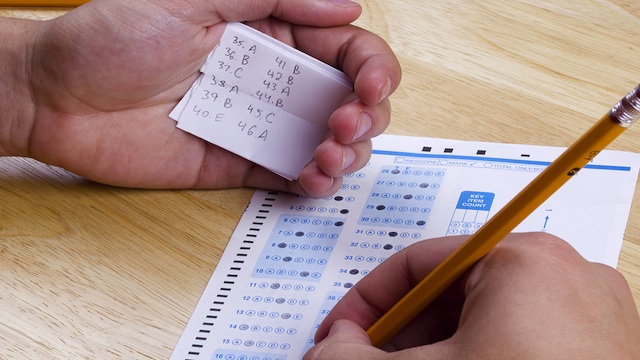Why We All Cheat & Steal, If Just a Little Bit

What’s the Latest Development?
Despite high-profile cases of gross dishonesty like Bernie Madoff and Rodger Clemens, which we like to think of as the rotten apples who spoil the otherwise-good bunch, it turns out that just about everyone has a tendency to cheat the system, if just a little bit. When behavioral economist Dan Ariely ran an experiment asking individuals to complete mathematical tasks in exchange for a cash payment, he found that people “completed” more tasks when they knew no experimenters would be checking their results. In real-world situations, the cumulative effects of small cheaters outweighs the actions of the isolated sociopaths.
What’s the Big Idea?
Researchers also found that the kinds of measures used to deter crime, such as increasing police presence and stiffening legal penalties, are not likely to affect the conscience of those who believe ‘I’m only fudging a little’. A moral reminder, however, quickly makes people more honest. In a follow up experiment, when Ariely’s team moved the signature line on an insurance form from the bottom to the top of the page, reminding people to be honest before they were tempted to get creative with the truth, rates of dishonesty quickly fell. While very few people cheat to a maximum degree, it is not unusual for good people to cheat here and there.
Photo credit: Shutterstock.com




